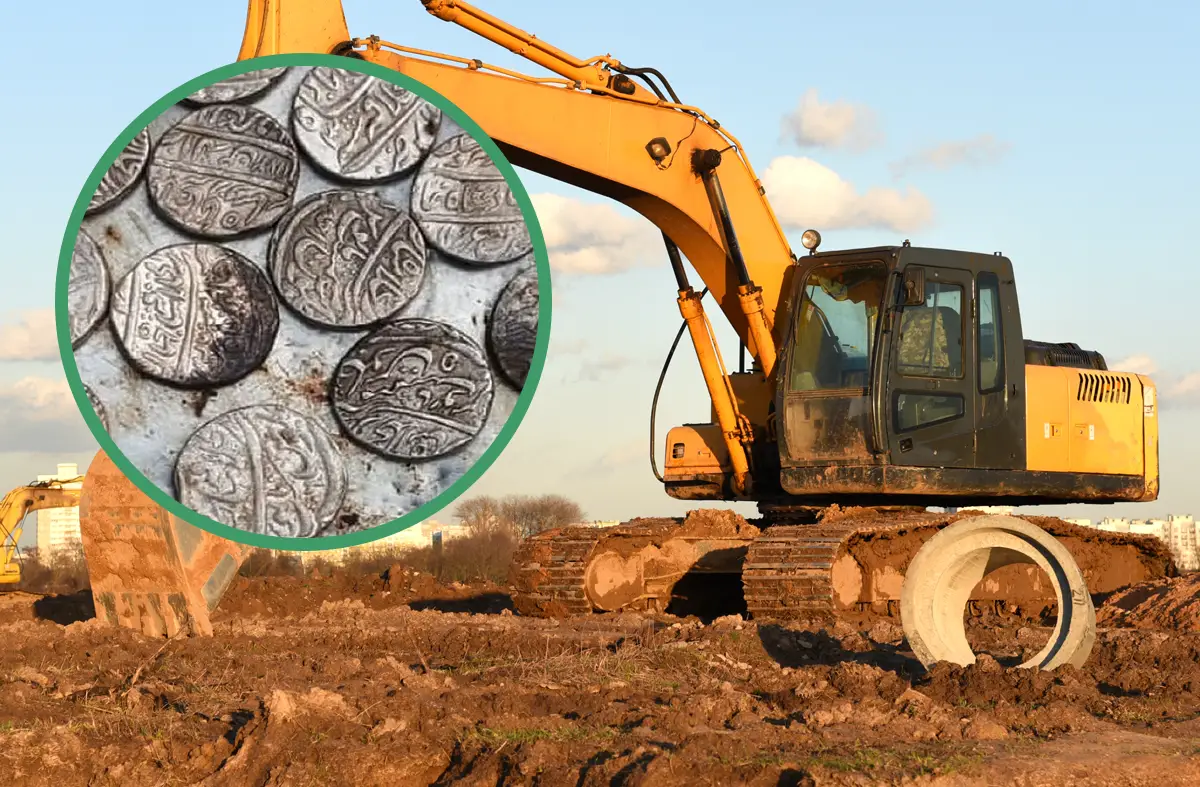A hoard of Mughal era coins has recently been uncovered by construction workers in Chaubara, located in the state of Uttar Pradesh, India.
Initially, the workers planned to divide the hoard among themselves, but as word got out, the discovery site was soon flooded with eager treasure hunters.
This caught the attention of local authorities, who confiscated the hoard and notified archaeologists from the local Archaeology Department.
The hoard consists of 49 coins and dates from the Mughal era (AD 1526–1857). At its peak, the Mughal Empire stretched from northern Afghanistan in the northwest, and Kashmir in the north, to the uplands of the Deccan Plateau in southern India.
Some of the coins have inscriptions written in Persian, a Western Iranian language belonging to the Iranian branch of the Indo-Iranian subdivision of the Indo-European languages.
Persian was one of the official languages spoken within the Mughal Empire, with Mughal actually being the Indo-Persian form of Mongol. The Empire was founded by Babur in 1526, who himself was a descendant of Timur and Genghis Khan through his father and mother respectively.
Although the hoard is yet to be examined by archaeologists, some of the coins have inscriptions referring to Mirza Shahab-ud-Din Muhammad Khurram, also known as Shah Jahan I, the 5th Mughal emperor who reigned from 1628 to 1658.
Several of the coins also refer to Mirza Nasir-ud-Din Muḥammad Shah, also known as Muhammad Shah, the 13th Mughal emperor who reigned from 1719 to 1748.
According to authorities, the coins will be housed in the Fatehpur police station treasury for safekeeping before being retrieved by the Archaeology Department for examination.
Header Image Credit : Fatehpur Police Station
Sources : Fatehpur Police Station





